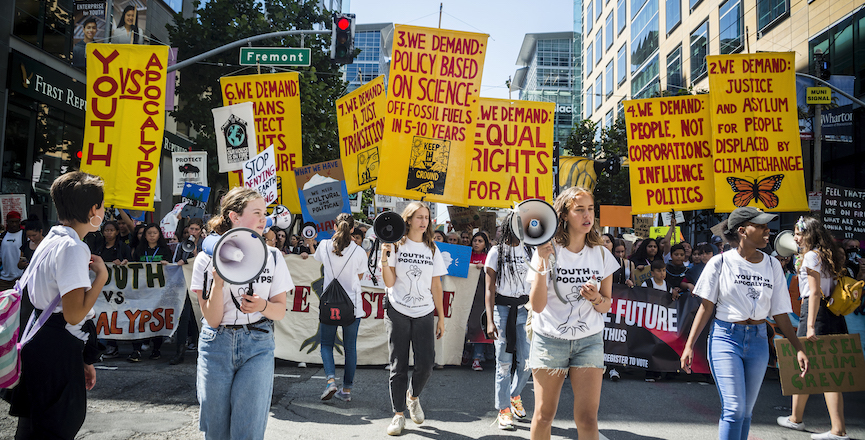Our national political arena often seems dominated by unproductive partisan potshots and misplaced accountability, with corporate interests prioritized over people’s.
Behind the noisy partisan sniping, a quiet majority — 70 to 75 per cent of Canadians — is largely disengaged from politics, according to McAllister Opinion Research. It’s not that people don’t care about climate change, affordability, equity and creating a healthier, more just and secure future for their children and grandchildren. Polls show they do — as do this month’s climate strikes and actions. They just don’t see politicians as relevant.
How can politicians earn back our trust and act on issues that matter?
With climate disruption, Simon Fraser University resource professor Mark Jaccard says we must distinguish between climate-sincere and climate-insincere politicians.
Three-quarters of Canadians say they’re worried about climate change. With floods, wildfires, heat waves and health threats like Lyme disease increasing, anxiety among Canadians is also rising.
Polls show that fairness matters to Canadians. We want to support action that takes that into account. The Intergovernmental Panel on Climate Change warns that climate change will disproportionately affect the poor and most vulnerable, who have contributed least to the problem.
Technical and policy solutions to climate change are known. All that’s lacking is political will — not only to implement solutions but to address the power imbalances in our political system that obstruct them.
One of the most glaring examples of the privileged few wielding disproportionate influence comes from the U.S. With funding from the Koch brothers and their allies, Americans for Prosperity has worked to hobble progressive groups and ensure the corporate agenda is prioritized. This, according to the Guardian, has curtailed Medicaid expansion to poor, uninsured adults, rolled back state efforts to address climate change, and given massive tax cuts to wealthy people and companies. Koch-related foundations have invested millions in Canadian think tanks and organizations that sow doubt about climate science and the most effective climate solutions.
In his upcoming book Regime of Obstruction: How Corporate Power Blocks Energy Democracy, University of Victoria professor William Carroll explains that fossil fuel corporations and their allies have a long reach into civil and political society that allows them to undertake organized, well-funded campaigns to block necessary climate action.
Our democratic systems need strengthening. Justice, equity and inclusion matter. Stifling these important values impedes our ability to act on societal challenges like climate disruption. Unequal privilege keeps the door open to those with influence who continue to manufacture distrust of climate science and meaningful solutions.
Everyone must benefit from the jobs and economic diversification that are part of a transition to renewable energy and better use of that energy through development of green buildings; active and cleaner transportation; and better planning for livable, resilient communities.
We need to change our systems, but how do we go further and change ourselves? Perhaps by listening to people who understand the importance of justice, equity and inclusion, and the perils of letting these values slip away.
At SevenGen, a 2019 Indigenous youth-led conference on renewable energy, co-chair Cory Beaver said his generation is the first to escape the immediate impacts of residential schools. Despite years of colonization, many in his cohort have retained or rediscovered their cultural ways and deep relationships with the land. With more than 200 young people attending from regions throughout Canada, they showed that Indigenous youth are rising with purpose, guided by their values — something denied to generations before them.
I’m also encouraged by Greta Thunberg and Canadian youth who have built their climate strikes into an accelerating series of moments that older people can no longer ignore.
If we care about the climate, we must care about justice. That means heeding Indigenous youth and the elders who inspire them. It means listening to the climate strike and social justice youth leaders, helping them raise awareness and shifting the power structures that have advantaged the few over the many for far too long. It means reminding politicians who they are supposed to serve.
It’s time to expose the structures that hold disproportionate privilege in place, listen to rising new voices and act in solidarity with courage and humility. Then we’ll be better able to care for one another and the planet, and chart a better course.
David Suzuki is a scientist, broadcaster, author and co-founder of the David Suzuki Foundation. Written with contributions from David Suzuki Foundation renewable energy transition manager Sherry Yano.
Learn more at davidsuzuki.org.
Image: Global Climate Strike



